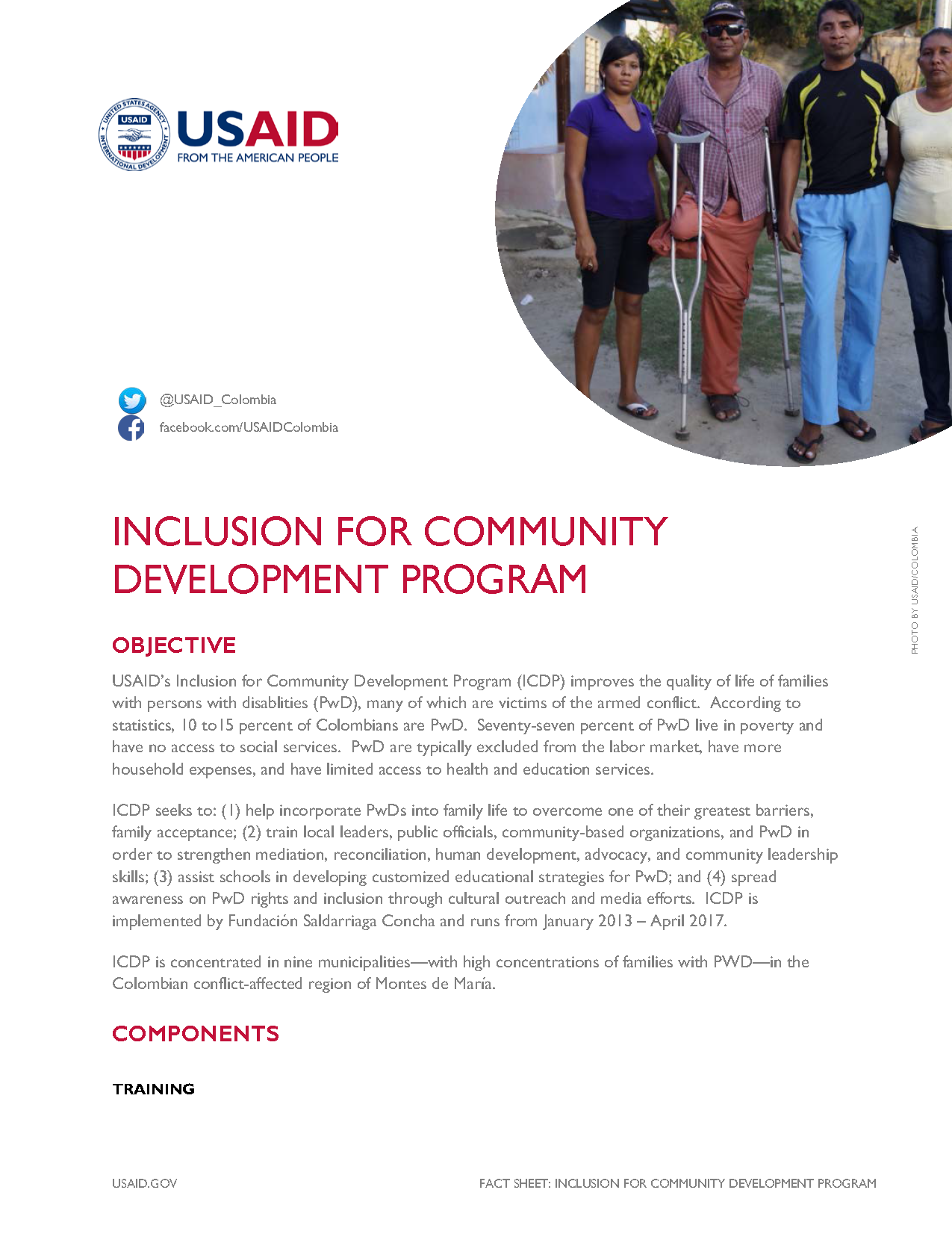OBJECTIVE
USAID’s Inclusion for Community Development Program (ICDP) improves the quality of life of families with persons with disablities (PwD), many of which are victims of the armed conflict. According to statistics, 10 to15 percent of Colombians are PwD. Seventy-seven percent of PwD live in poverty and have no access to social services. PwD are typically excluded from the labor market, have more household expenses, and have limited access to health and education services.
ICDP seeks to: (1) help incorporate PwDs into family life to overcome one of their greatest barriers, family acceptance; (2) train local leaders, public officials, community-based organizations, and PwD in order to strengthen mediation, reconciliation, human development, advocacy, and community leadership skills; (3) assist schools in developing customized educational strategies for PwD; and (4) spread awareness on PwD rights and inclusion through cultural outreach and media efforts. ICDP is implemented by Fundación Saldarriaga Concha and runs from January 2013 – April 2017.
ICDP is concentrated in nine municipalities—with high concentrations of families with PWD—in the Colombian conflict-affected region of Montes de María.
COMPONENTS
Training
ICDP trains public officials, responsible for providing support to families, to use an inclusive approach when assisting families of PwD. In total, 1,000 families received assistance, which included personal, at-home attention and community training. Given that many caretakers of PwD also tend to be socially excluded, ICDP trains families on how to reverse this trend so that all family members are able to serve as active members of their community. ICDP also worked with the GOC’s agency responsible for addressing extreme poverty to strengthen their strategy for PwD inclusion.
Sustainability
ICDP works with local authorities to ensure the inclusion of PwD in local development plans, strengthening long-term impact and project sustainability. The program has also developed a stronger support network for PwD—including the family, community leaders and government officials—to increase interaction among the various actors in support of PwD. By leveraging this strengthened network, the program increases community awareness on PwD issues and advocates for PwD through art and culture.
Information Access
ICDP aims to ensure access to information for PwD and their families through literacy, helping to strengthen PwD self-sufficiency in the long term. ICDP also uses the literacy training to build the capacities of PwD on important issues, like business planning, community participation, and conflict resolution, among others. By developing their own content, ICDP ensures that the literacy training materials are specifically focused on PwD issues.
RESULTS
- Trained 1,008 families on PwD rights.
- Engaged150 community leaders in project activities.
- Enrolled more than 40 public officials in the process of rights and inclusion of PwD.
- Supported nine cultural events to promote community awareness on rights and inclusion.
- Created a mobilization campaign on social inclusion, reconciliation and peace building in the municipalities.








Comment
Make a general inquiry or suggest an improvement.